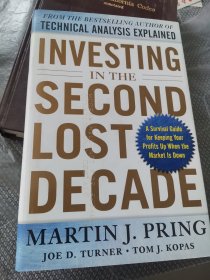
Investing in the Homeland: Migration, Social Ties, and Foreign Firms 在本土投资:移民、社会关系和外国公司
¥ 600 九品
仅1件
作者Benjamin A.T. Graham
出版社University of Michigan Press
ISBN9780472131150
出版时间2019-01
印刷时间2019-01
装帧精装
页数270页
上书时间2021-10-21
- 最新上架
商品详情
- 品相描述:九品
- 商品描述
-
Once viewed as a “brain drain,” migrants are increasingly viewed as a resource for promoting economic development back in their home countries. In Investing in the Homeland, Benjamin Graham finds that diasporans—migrants and their descendants—play a critical role in linking foreign firms to social networks in developing countries, allowing firms to flourish even in challenging political environments most foreign investors shun.
Graham’s analysis draws on new data from face-to-face interviews with the managers of over 450 foreign firms operating in two developing countries: Georgia and the Philippines. Diaspora-owned and diaspora-managed firms are better connected than other foreign firms and they use social ties to resolve disputes and influence government policy. At the same time, Graham shows that diaspora-affiliated firms are no more socially responsible than their purely foreign peers—at root, they are profit-seeking enterprises, not development NGOs. Graham identifies implications for policymakers seeking to capture the development potential of diaspora investment and for managers of multinational firms who want to harness diasporans as a source of sustained competitive advantage.
移徙者一度被视为”人才外流”,现在越来越多地被视为促进本国经济发展的资源。本杰明 · 格雷厄姆发现,侨民——移民及其后代——在将外国公司与发展中国家的社交网络联系起来方面发挥了关键作用,使得公司即使在大多数外国投资者回避的富有挑战性的政治环境中也能蓬勃发展。格雷厄姆的分析利用了对在两个发展中国家——格鲁吉亚和菲律宾——经营的450多家外国公司的管理人员进行面对面采访的新数据。与其他外国公司相比,侨民拥有和侨民管理的公司关系更密切,它们利用社会关系解决争端并影响政府政策。与此同时,格雷厄姆指出,散居国外的企业并不比纯粹的外国同行更具社会责任感ーー从根本上说,它们是追求利润的企业,而不是发展中的非政府组织。Graham 指出,这对寻求发掘侨民投资发展潜力的政策制定者以及希望利用侨民作为持续竞争优势来源的跨国公司管理人员具有重要意义。
基本信息
出版社 : University of Michigan Press (2019年1月23日)
语言 : 英语
精装 : 270页
ISBN-10 : 047213115X
ISBN-13 : 978-0472131150
商品重量 : 431 g
尺寸 : 15.24 x 2.54 x 22.86 cm
相关推荐
-

INVESTING IN HOSPITALS OF THE FUTURE
九品北京
¥ 35.00
-

Investing in the second lost decade
九品北京
¥ 400.00
-

CliffNotes Investing in the Stock Market
八五品广州
¥ 25.00
-

Doing business and investing in the Philippines
九品南昌
¥ 80.00
-

Investing in the second lost decade..
九品北京
¥ 200.01
-

Investing in the second lost decade..
九品北京
¥ 200.00
-

Investing in the second lost decade.
九品北京
¥ 200.00
-

Low Risk Investing in the 90's
八五品北京
¥ 50.00
-

Investing in warrants -the asx way
八五品上海
¥ 200.00
-

Generation ALT: The New Movement In Alternative Investing
八五品上海
¥ 240.00
— 没有更多了 —













以下为对购买帮助不大的评价